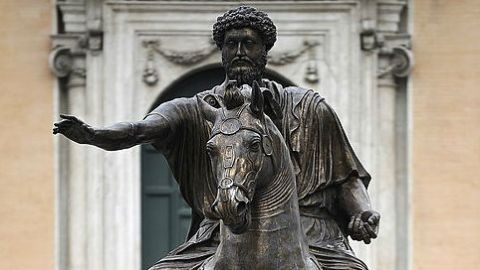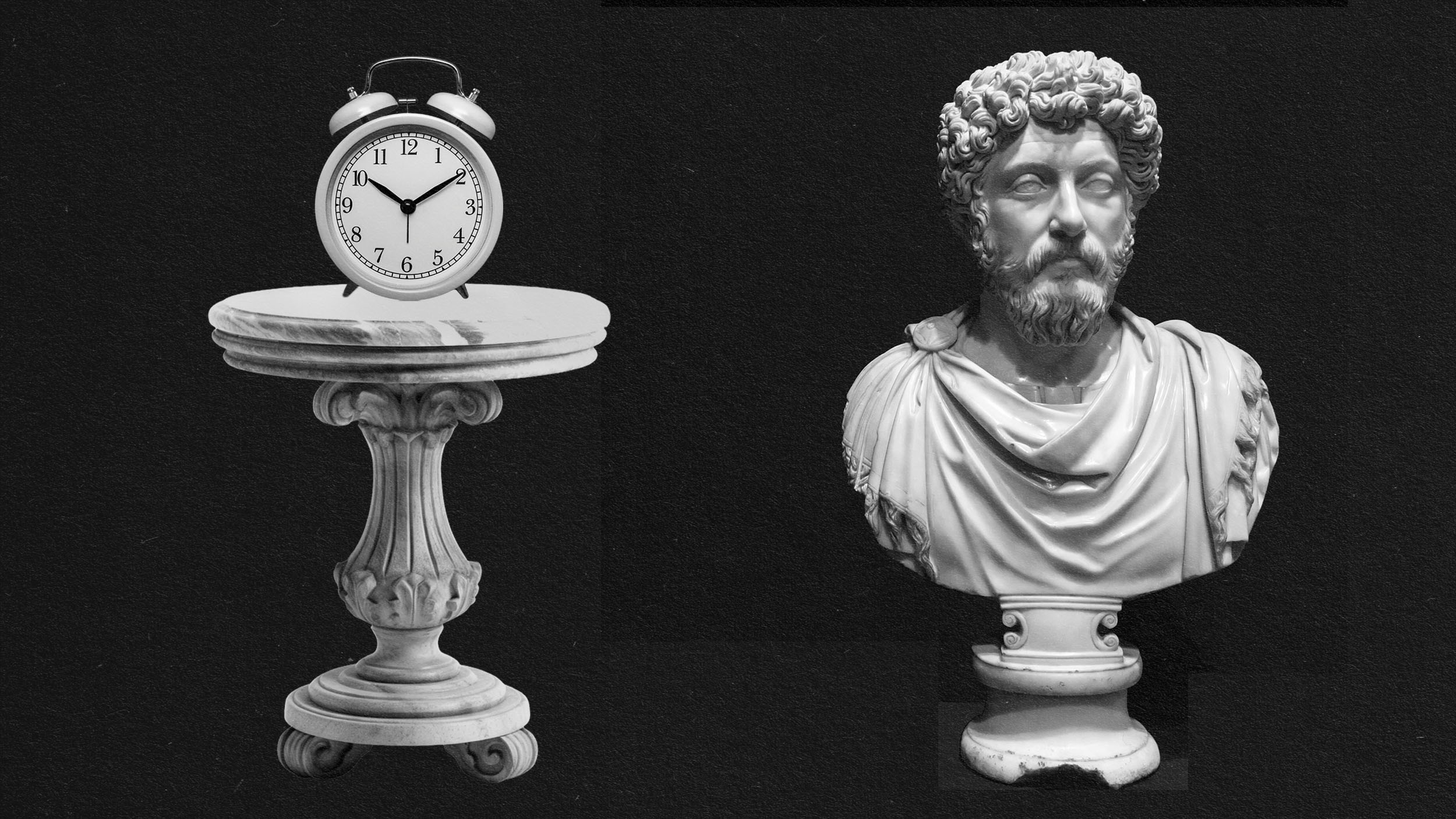What Happens When a Philosopher Becomes a King?

Many great thinkers have devoted their time to trying to understand the ideal society; laying out a system of government, values, and behavior, practiced in their utopia. Few, if any, of these thinkers ever had a chance to directly enact their ideas. While the ideas of great thinkers are often cited by leaders, there are only rare moments when a concept in a Utopian vision is given a real, concrete, demonstration.
But what happens when those moments arrive? They are few and far between, but they do occur. Often we get only bits and pieces of a utopia put into practice, but even these moments can be enlightening.
In the original Utopian book, Republic, Plato lays out the idea of a city state lead by Philosopher Kings, stating “Until philosophers are kings….cities will never have rest from their evils”. Luckily for us, there is a clear example of this being put into action, when the Roman Empire was lead by a Philosopher King: Marcus Aurelius Antoninus.
So, how did it go? What was it like to have one of the key ideas of one of the greatest minds in history enacted in one of the greatest empires the world has ever seen? It kind of depends on who you ask.
Marcus Aurelius was the last of the “Five Good Emperors”; a series of rulers so excellent that in his masterpiece The Decline and Fall of the Roman Empire, Gibbion declared: “If a man were called to fix the period in the history of the world during which the condition of the human race was most happy and prosperous, he would, without hesitation, name that which elapsed from the death of Domitian to the accession of Commodus”.
Educated by the best tutors that could be found before taking the throne, just as Plato would have hoped, Marcus Aurelius could claim an understanding of law, philosophy, and language that was considerable. He was regarded as “an emperor most skilled in the law”, noted for his focus on the protection of poor and orphaned children and ensuring legal rights for freed slaves. During a series of famines that struck Italy, he personally oversaw the relief effort. When Rome was struck by a plague laws were enacted to prevent it’s spread; laws that were still in effect in the late 20th century. When the imperial treasury was low, he auctioned off his own possessions along with imperial trappings before asking for improved tax revenues. When Rome went to war against both domestic and foreign foes for the first time in many years, he oversaw victory from Germany to Mesopotamia. While an absolute ruler, he made all the required overtures to the Senate and even went farther in securing their support then he had to.
His title of philosopher is simple to justify. He composed a series of personal notes as a book known today as “Meditations”. Universally regarded as an outstanding work in the stoic tradition, offering advice to the reader- only intended to be himself -on how to engage with the world with virtue and reason. It has influenced philosophy since it’s creation, appearing in the work of Immanuel Kant over one and a half millennia later. It continues to guide thinking to this day.
But perhaps his greatest claim to being a stoic philosopher is found when one realizes that he wrote most of the meditations while on the battlefields at the edges of the civilized world, finding nightly solace in philosophy to escape from the daily chaos of war. A better example of stoicism in action is difficult to find.
He was not quite perfect, however. He oversaw extensive persecution of Christians during his reign. Being the first emperor in nearly a century to have a living son capable of succeeding him, he supported the right of that son, Commodus, to rule. Commodus was regarded as megalomaniacal, arbitrary, and unvirtuous; he was assassinated and declared a public enemy by the Senate after his death. During his reign he had a slight obsession with him naming things after himself, including the legions, the months of the year, and the city of Rome itself. The fact that the virtuous Marcus Aurelius would endorse this person for absolute ruler is perhaps his greatest failure.
So, should we or should we not start to take a little more of Plato’s advice on politics? Perhaps we should not, as Austro-British philosopher Karl Popper blamed the idea of the Philosopher King for justifying the totalitarian regimes of the 20th century. Even the philosopher king himself didn’t see fit to carry out Plato’s ideas to their full, totalitarian, extent. While Plato recommended state censorship of bedtime stories and bans on music in depressing modes, Marcus Aurelius was praised for allowing direct ridicule of himself in stage productions to go unpunished; an unusually high amount of free speech at the time.
In the end, Plato’s ideal society would make modern readers shudder. But even considering the ideas of this great thinker can help us improve the societies around us. Even while few would endorse moving to Plato’s ideal city, they would all endorse studying what works, what doesn’t, and if it can be recreated elsewhere. The life of Marcus Aurelius reminds us that we can learn and benefit from the idea of a perfect country, even if we don’t accept all of it.
Sources:
Birley, Anthony. Marcus Aurelius. Boston: Little, Brown, 1966. Print.
Popper, Karl. The Poverty of Historicism. Routledge, 2002. Print.
Plato, G. Grube M. A., and C. Reeve D. C. Republic. Indianapolis: Hackett Pub., 1992. Print.
Russell, Bertrand (2004) [1946]. History of Western Philosophy. London: Routledge. pp. 248–56





